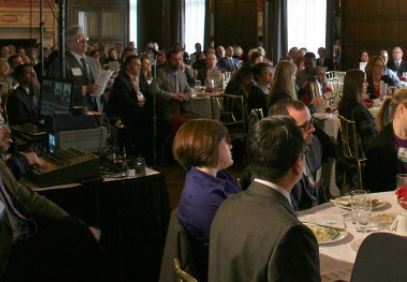Support Ohio Local Economies CoalitionBuilding strong local economies together
esenyurt escort
Business
Who Built That?
With the slew of personal attacks and irrelevant trivia that tends to dominate the airwaves in an election year, one could be forgiven for not following politics too closely right now. Recently, though, something of substance emerged out of the bickering, something that may challenge our most deeply held feelings about supporting local businesses. It dug straight to the root of the political divide in this country by turning a spotlight on a question most of us probably never bother to ask ourselves.
Let’s back up first for some context. In his book, Outliers: The Story of Success, Malcolm Gladwell asserted that success was the result of a three-part formula consisting of thousands of hours of hard work, help from others, and dumb luck. Without any one of those things, Gladwell argued, success simply was not possible. In a speaking tour last year, Harvard Law professor and former advisor to President Obama, Elizabeth Warren, caught both praise and flak nationwide by focusing on the second part of that formula:
“There is nobody in this country who got rich on his own — nobody. You built a factory out there? Good for you. But I want to be clear. You moved your goods to market on the roads the rest of us paid for. You hired workers the rest of us paid to educate. You were safe in your factory because of police-forces and fire-forces that the rest of us paid for. You didn’t have to worry that marauding bands would come and seize everything at your factory — and hire someone to protect against this — because of the work the rest of us did.
Now look, you built a factory and it turned into something terrific, or a great idea. God bless — keep a big hunk of it. But part of the underlying social contract is, you take a hunk of that and pay forward for the next kid who comes along.”
(video clip)
Shortly after Warren’s statement, George Monbiot, writing for the Guardian, expressed a similar point of view, but a lot less charitably.
“Intelligence? Talent? No, the ultra-rich got to where they are through luck and brutality. If wealth was the inevitable result of hard work and enterprise, every woman in Africa would be a millionaire. The claims that the ultra-rich 1% make for themselves – that they are possessed of unique intelligence or creativity or drive – are examples of the self-attribution fallacy. This means crediting yourself with outcomes for which you weren’t responsible.”
While Monbiot’s statement was ferocious, what he was really attacking was the claim that the first part of Gladwell’s formula—hard work—was solely and uniquely responsible for the good fortune of the wealthy.
In a rare, inarticulate moment last week, President Obama clumsily tried to drive home that same idea.
“If you were successful, somebody along the line gave you some help. There was a great teacher somewhere in your life. Somebody helped to create this unbelievable American system that we have that allowed you to thrive. Somebody invested in roads and bridges. If you’ve got a business, you didn’t build that. Somebody else made that happen. The Internet didn’t get invented on its own. Government research created the Internet so that all the companies could make money off the Internet.
“The point is, when we succeed, we succeed because of our individual initiative, but also because we do things together. There are some things, just like fighting fires, we don’t do on our own. I mean, imagine if everybody had their own fire service. That would be a hard way to organize fighting fires.”
Right-wing pundits were quick to seize upon the most clumsily phrased portion of that statement and run with it like a dog with a steak fresh off the grill. FOX News viewers didn’t have to watch long before they were told repeatedly that Obama had said, “If you’ve got a business, you didn’t build that.” Presidental contender Mitt Romney, arguably one of the most dedicated promoters of the self-attribution fallacy, decried Obama’s statement as no less than an attack on success itself.
When we strip away the political gamesmanship and look at the President’s statement in context, it’s still no less offensive to conservatives—and business owners, in particular—who emphasize the first part of Gladwell’s formula, perhaps to the point of excluding the other two parts. Nobody likes to have his hard work minimized by others, and most certainly not by someone who wants to come in after the fact and claim for himself a piece of the credit…and the profit. It’s comforting, then, for those who worked hard and have something to show for it to insulate themselves in the ideology of righteous self-interest—what Ayn Rand called “Objectivism”-like a warm blanket that protects against the cold, icy hands of beggars and thieves. It’s a popular, comfortable view, both for those who feel they have something to lose and for those who aspire to have such worries someday.
When we ignore Gladwell’s formula, we see the state of American politics today; we’re left with a battle between two competing, equally compelling, yet equally incomplete ideologies: collectivism vs. individualism. The left claims that the only way to succeed is to work together, while the right says that doing so only drags down those who would otherwise be destined for greatness. Collectivism celebrates community and sharing. Individualism celebrates heroes and hard work. Both sides tell us their ideas are mutually exclusive.
Where does localizing our economy fit into this debate? How do we present the case to liberals that the tough, new regulations they petitioned for are preventing their neighbors from starting their own small businesses? How do we convince conservatives to patronize a local shop when they can save $1.70 having Amazon deliver the goods right to their front door? How do we demonstrate to these two camps that we need what both of them have to offer? What do you think? Leave your comments below.




